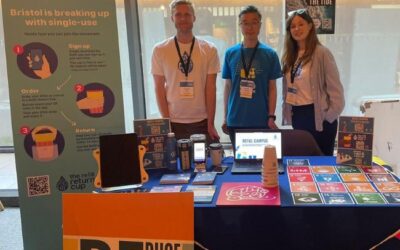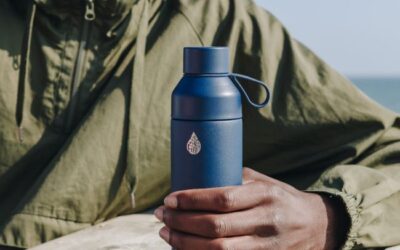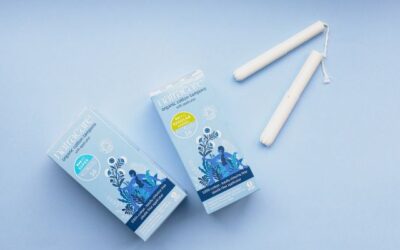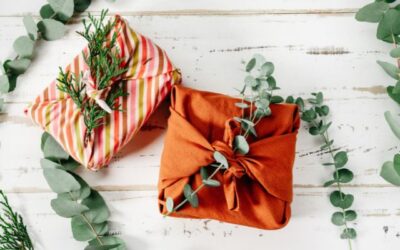Plastic-free
cleaning
Everyday tips to embrace a plastic-free cleaning routine
Our kitchen and bathroom cupboards are home to a surprising amount of single-use plastic. Although not everyone gets through cleaning products at a super–fast rate, almost all of them come in single-use plastic bottles or packaging. Globally, 90.5% of plastic waste has never been recycled and only 14% of plastic packaging is even collected for recycling. So even if these plastic bottles and containers say they can be recycled, guess where they’ll more than likely end up? Yep in landfill or in our oceans.
The good news is, it’s so easy to make the switch to reusables or zero-wate options, and embrace a plastic-free cleaning routine. Discover how the smallest changes to your cleaning cupboard can help tackle some of the biggest plastic pollution problems!
Don’t bottle it
An estimated 13 billion plastic bottles are being used in the UK every year. Most of these are found in our bathrooms or kitchens and used to keep our houses clean. Not only are these single-use bottles contributing to plastic pollution found in our oceans. But they contain lots of nasty chemicals too. And once the empty bottles make it to the ocean, they hang around a long time – like this Fairy Liquid bottle from the 70’s found a few years ago.
Luckily, it’s now much easier to #ChooseToReuse and avoid buying cleaning products in single-use plastic packaging. Here are some plastic-free cleaning tips that are better for you, and better for the planet:
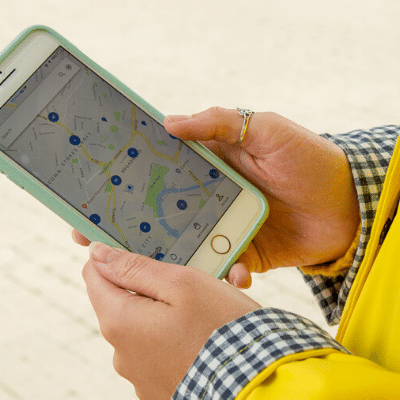
1. Join the Refill Revolution
Instead of buying new bottles of cleaning products. Simply keep your empties and take them down to your nearest zero–waste store to refill. Download the free Refill app and find your nearest Refill Station for an easy plastic-free cleaning alternative. Many zero-waste and plastic-free shops offer refills of washing–up liquid, detergent, floor and all-purpose cleaners alongside other beauty and bathroom products too. Don’t have a zero-waste store nearby? You can still choose to reuse when it comes to cleaning products by using a refill delivery service online.
2. Drop it like it’s hot
Another option to refilling is…dropping! In other words, look out for small concentrated ‘drops’ of cleaning products when you’re doing your weekly shop. Just add your drop, capsule or tablet to a spray bottle filled with water, watch it dissolve and hey presto – plastic-free cleaning is at your fingertips! This way you can re-use your spray bottles over and over again. Plus, the drops are highly concentrated, which makes their shipping and transport much lighter, not to mention takes up less space in your cupboards.
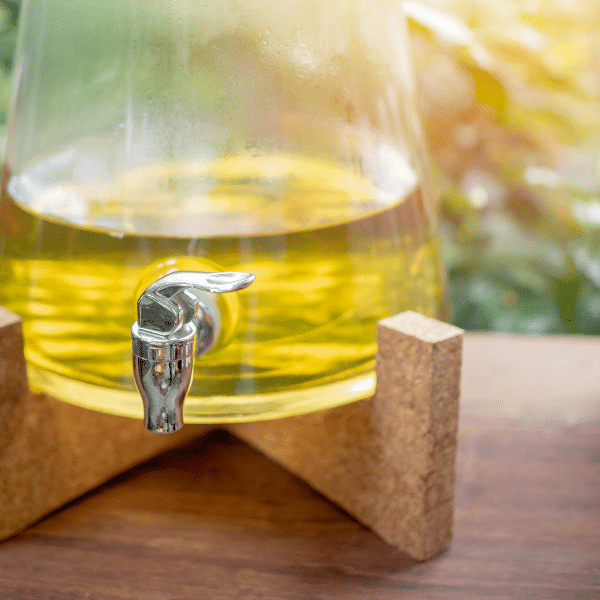
3. Make your own!
An obvious solution to making your cleaning routine more environmentally friendly is to make your own cleaning products. This way you can avoid toxic ingredients and avoid single-use plastic. Double win!
Try white vinegar, peel of lemons or oranges mixed with water for all-purpose cleaning. Or mix equal parts vinegar and water in a spray bottle with a few drops of essential oil.
To get rid of mould try mixing baking soda with water and scrubbing with an old toothbrush. For serious gunk and grime, you can mix equal parts baking soda with olive oil, leave it to sit for a few mins then attack!
THE RIGHT TOOLS FOR THE JOB
While plastic pollution from single-use bottles is an obvious concern, the tools we use to clean our houses are also adding to the problem. Most common kitchen sponges are made from plastic and can’t be recycled or composted. And with every wash, they release microplastics into the sea.
Many cleaning tools like brushes are made from plastic and seen as ‘disposable’, made to be thrown away rather than to last. And if a plastic toothbrush takes hundreds of years to break down, then plastic cleaning brushes will be around just as long.
Here are some tips to avoid plastic when it comes to your cleaning tools:

Instead of buying jay cloths, dusters and other disposable clothes, why not make rags from clothes you no longer wear?
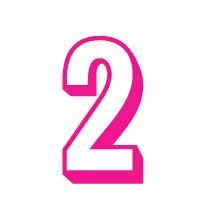
Opt for a natural, biodegradable sponge rather than one made of plastic. You can even grow your own sponge to clean the dishes with. As easily as growing courgettes! Here’s how.
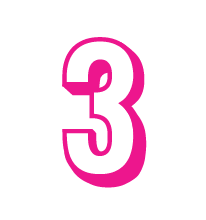
If your hands need protecting whilst doing the dishes, ditch the marigolds and try natural rubber gloves instead.

Buy brushes made from biodegradable/compostable material such as wood. And for serious scrubbing action, choose easily recyclable material like copper.

Repurpose any old toothbrushes for cleaning purposes, they’re perfect for getting into corners and small spaces.
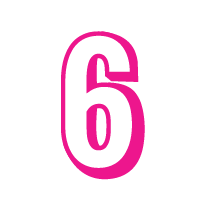
Buy reusable cloths made from natural materials that can be washed rather than jay cloths that are thrown away after a few uses.
KEEPING YOUR LAUNDRY FRESH, CLEAN AND PLASTIC-FREE
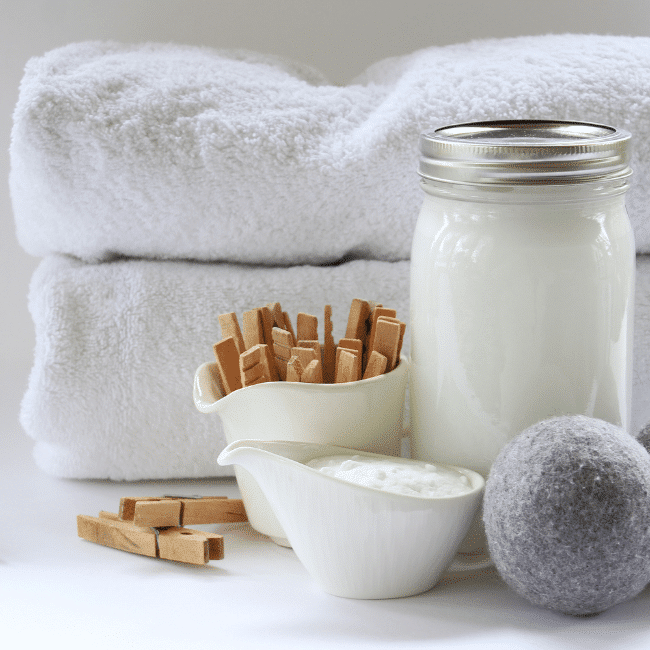
1. GIVE PLASTIC-FREE DETERGENT A SPIN
Many brands offer zero-waste Refills of laundry detergent and softener, so take your bottle to your nearest zero-waste shop (using the Refill App to help you find it!) and get fresh and clean smelling clothes, plastic-free!
If you prefer your detergent in capsule form over liquid or powder, you’ll know they often come in plastic tubs. Luckily, lots of planet-friendly companies have come up with some plastic-free solutions for our washing machines and dishwashers. Whether you want a pod, a tablet, a capsule or a strip – there are plastic-free alternatives for all of your cleaning needs.
2. IT’S MORE THAN A MICRO PROBLEM
Did you know that microfibres – tiny fragments of the type of plastic used to make synthetic fabrics from our clothes are being released into the rivers and oceans with every wash cycle? These harm marine life, get ingested by animals in the aquatic food chain and even end up on our plates in our fish suppers! Plastics are certainly not what we ordered.
The Chief Scientist for Ocean Conservation (George Leonard) estimates there are 1.4 million trillion microfibers in the ocean.
So, what can we do about it? Wash your clothes in a laundry bag that captures microfibers, stopping them from entering the oceans, or purchase a micro-fibre capturing ball that makes it easy to dispose of those pesky fibres properly.
Plastic-free Living
Real change begins at home, so where better place to start to live with less plastic, than under your own roof. Discover more ways to embrace plastic-free lving.
Plastic Free University
As a new or even returning student, choose reuse and do your bit for the planet, and even save some pennies while you’re at it!
Break up with Single-Use for Plastic Free July
This Plastic-Free July, we’ve pulled together 10 simple swaps you can do today to reduce the amount of single-use plastic in your life.
Planet-Friendly Periods with Natracare
Planet-friendly periods with NatracareLet’s #BeKind to our bodies and the planet A bloody good period for everyone. Here at City to Sea, we’re committed to ensuring everyone has a bloody good period. Since 2017, through our Plastic-Free Periods campaign, we’ve been...
Plastic-Free Easter
Here are our top tips to make it an eco-friendly egg-stravaganza and avoid the unnecessary plastic, and enjoy a plastic-free Easter.
Plastic-Free Festivals
In recent years we’ve seen festivals taking steps to be more sustainable and reduce the amount of waste – from banning glitter to implementing returnable cup schemes, it’s great to see so many festival organisers finding innovative ways to reduce the impact on the planet whilst still delivering incredible event.
How to Save Money, Save Plastic and Save Christmas
Christmas can mean spending money and buying too much plastic. We’re bringing you top tips to save money, save plastic and save Christmas.


